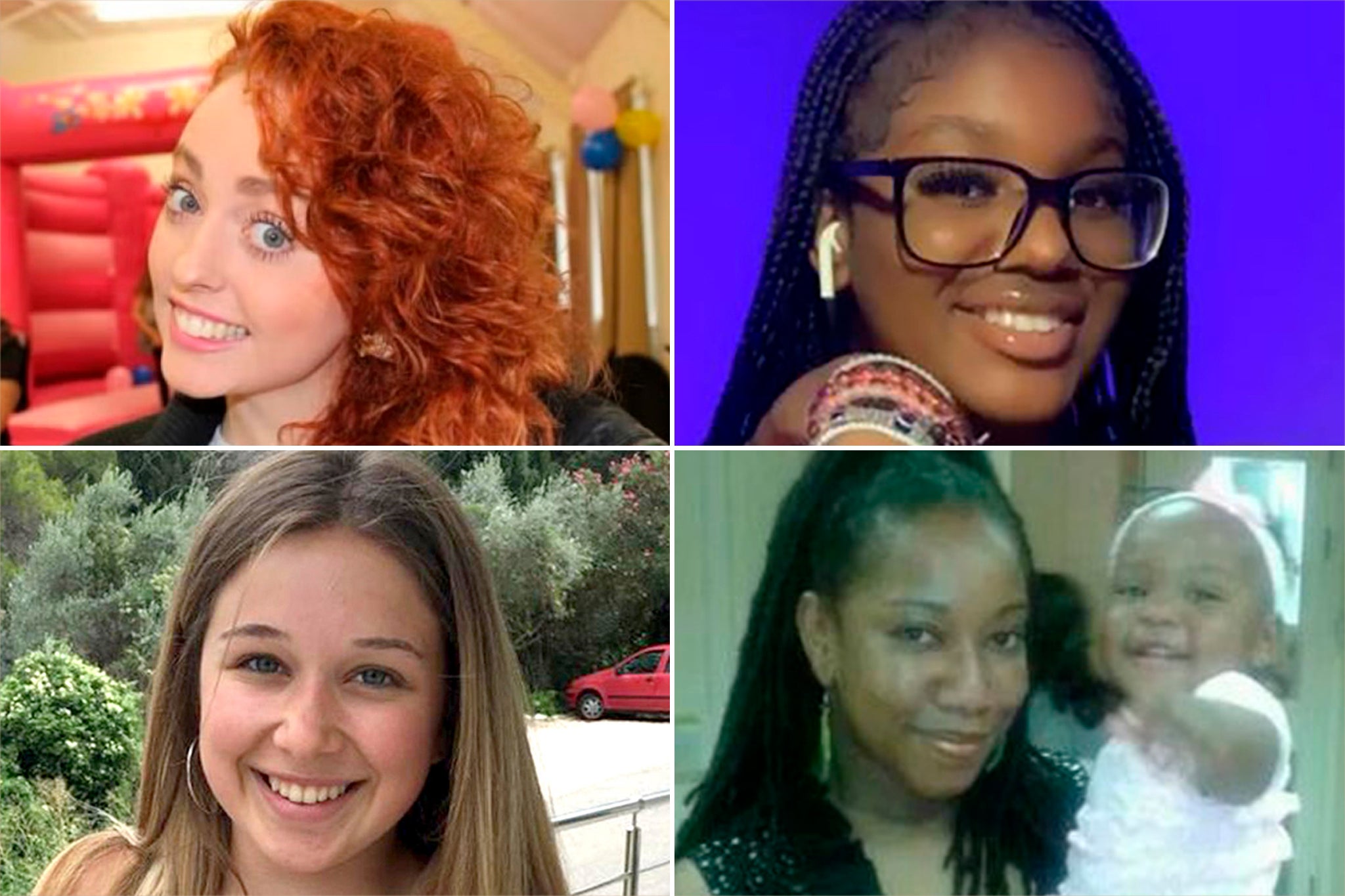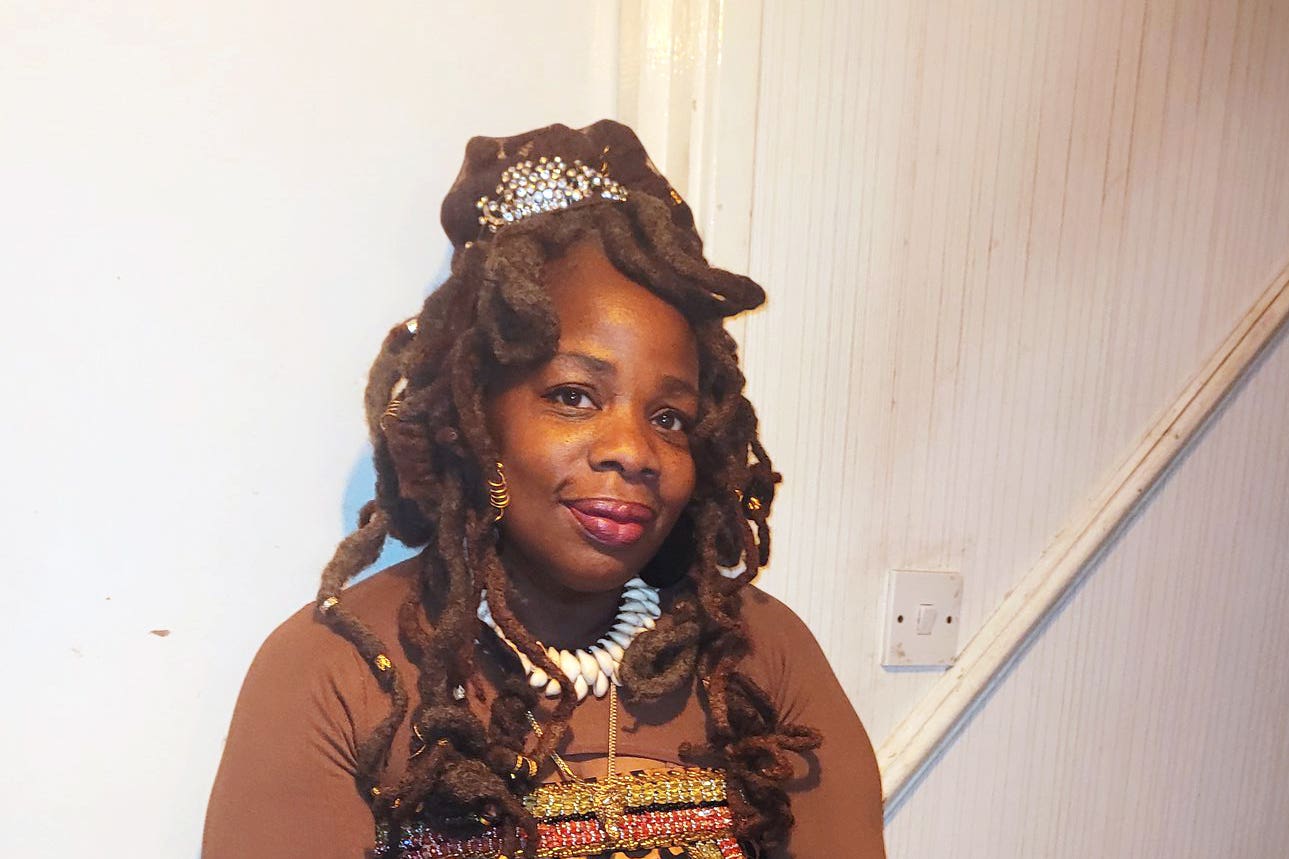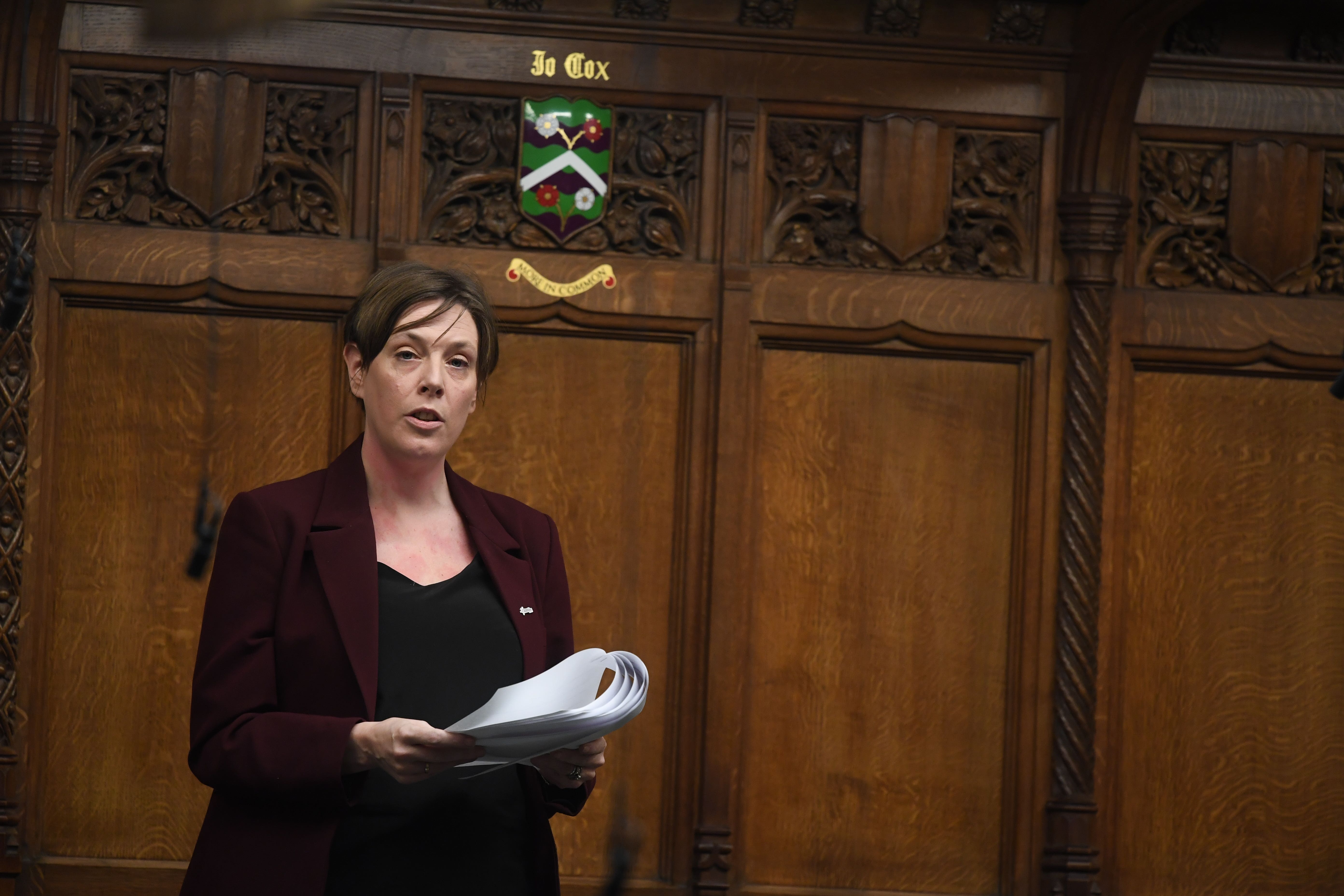Knife crime against women and girls doubles as campaigners warn not enough is being done to tackle crisis
Exclusive: As new figures lay bare scale of knife-related offences across the UK, families of victims say there should be ‘national outcry’
Knife crime against women and girls has more than doubled in five years and campaigners are warning that not enough is being done to keep them safe.
New figures obtained by The Independent show the number of women who were killed, injured or threatened by a knife soared from 6,000 in 2018 to more than 13,700 in 2022 – laying bare the scale of the crisis. The offences include ones relating to robbery, rape, homicide, public order and theft.
Elianne Andam, 15, is among the victims of knife crime, having been killed on her way to school in Croydon last September. Mehak Sharma, 19, was stabbed to death in the same borough last November having just moved to the UK from India.

Campaigners say the statistics, which cover the last available full year of 2022, show the country needs to tackle the crisis, particularly when it relates to domestic violence, with Labour MP Jess Phillips warning: “Things are getting progressively worse.”
Nick Gazzard, whose 20-year-old daughter Hollie died after being stabbed 14 times by her violent ex-boyfriend in 2014, said: “If this was terrorism, there would be a national outcry.”

The figures for 2022 reveal that:
- The number of female knife crime victims surged by 43 per cent in the West Midlands, from 1,010 in 2018 to 1,448 in 2022, according to the UK’s second-largest force
- In Essex, the number of victims more than quadrupled in the same time frame – from 435 to 1,879
- And Avon and Somerset recorded the number of victims as rising 46 per cent over five years, from 593 to 868
After a Freedom of Information request made by this publication, 26 of the UK’s 43 police forces provided data on knife crime where the victim was either a girl or a woman. The Metropolitan Police, Britain’s largest force, did not respond.
The latest full-year countrywide figures from the Office for National Statistics (ONS), also for 2022, show that 282 homicides – or four out of 10 – were committed using a knife or sharp instrument. This represented a 19 per cent increase over the previous year.
Police said the way knife crimes are recorded had changed in 2019 but they could not attribute the rise in figures to those changes.
Knives and sharp instruments are the most common weapons used to kill women in this country. ONS data shows that, in the year ending March 2022, one in three female homicide victims was killed by a partner or ex (33 per cent), while more than one in 10 died at the hands of a relative (13 per cent). Some 40 per cent of the deaths occurred in or around the home, compared to 7 per cent in the street or other public spaces.
Ms Phillips has long championed the fight against domestic violence but says the government’s Domestic Abuse Bill does not do enough to protect women. The MP for Birmingham Yardley blames a reduction in youth services and workers, local council cuts, and a lack of police and judicial resources for fuelling the crisis.
The MP, who every year in parliament reads out the names of women killed by men, said: “Things are getting progressively worse, knife crime against women is classic domestic abuse but that’s not ever included in knife crime strategy.
“If only they [the government] cared as much about sexual and domestic abuse as they care about Rwanda.”
The law currently states killers who bring a weapon to the scene face a minimum 25-year sentence, while sentences for those who do not start at 15 years. As domestic killers are more likely to use a weapon lying around the house, like a kitchen knife, they can end up with more lenient jail terms.

Carole Gould has campaigned to close the legal loophole ever since her 17-year-old daughter Ellie was killed by her boyfriend of three months when she ended the relationship.
Thomas Griffiths was sentenced to life imprisonment with a minimum term of 12-and-a-half years in 2019 after he walked into Ellie’s family home, strangled her and then stabbed her 13 times, attempting to frame the attack as a suicide by inserting the knife in the side of her neck.
“She’d only been going out with him for a few months,” her mother said. “The ending of a relationship is the most dangerous time in a woman’s life.”

Campaigner Ngozi Fulani told The Independent that the cost of living crisis may also have had an impact on the rise in crimes against women.
Ms Fulani set up the charity Sistah Space to advocate for Black female victims of domestic abuse in the wake of the deaths of Valerie Forde and her 22-month-old daughter Jahzara. They were both stabbed to death in 2014 by Ms Forde’s ex Roland McKoy, who was jailed for 35 years.
“We have seen a significant rise in reporting to us of knife or sharp instrument attacks,” Ms Fulani said. “We are in a time of economic depression right now and we find perpetrators in unstable economic situations will often become violent.”

Sistah Space has campaigned for Valerie’s Law, legislation that would make specialist training mandatory for all police and other government agencies that support black women and girls affected by domestic abuse.
“We want people to understand one thing – domestic abuse is not a woman’s problem,” she said. “It’s an everybody problem.”
For Deniz Ugur, deputy director of the End Violence Against Women Coalition, violence by men against women is part of a cultural problem that needs to be tackled.

“Women and girls face the constant threat of male violence, whether that’s in public spaces, the workplace, online or in our own homes, where the majority of this violence takes place,” he said.
“If we are to change this then it is critical that the government prioritises and invests in quality relationships and sex education based on consent and equality, and public campaigns to shift the attitudes that justify and normalise this violence and abuse. Women and girls deserve better.”
Conservative MP Caroline Nokes has criticised the government for refusing to commit to a new educational strategy for boys which would aim to tackle sexual harassment and gender-based violence.
The chair of the cross-party women’s and equalities committee said: “Education is a powerful and necessary tool in preventing violence against women and girls. Relationships, sex and health education that continues past secondary school and that engages proactively with boys and young men is crucial to combat harmful attitudes.”

A Home Office spokesperson said: “The government is committed to raising the bar in how these vile crimes are dealt with.
“We have gone further than ever before in protecting domestic abuse victims, classifying it as a national threat. Our innovative Young Women and Girls Fund also delivers specialist interventions to vulnerable young women and girls at risk of exploitation or violence.
“We will continue to work closely with the police and courts to bring more criminals to justice, and have set clear expectations for how the police should respond.”
This article was amended on 8 January 2024. One paragraph previously inaccurately cited national figures as being those from London.
Bookmark popover
Removed from bookmarks